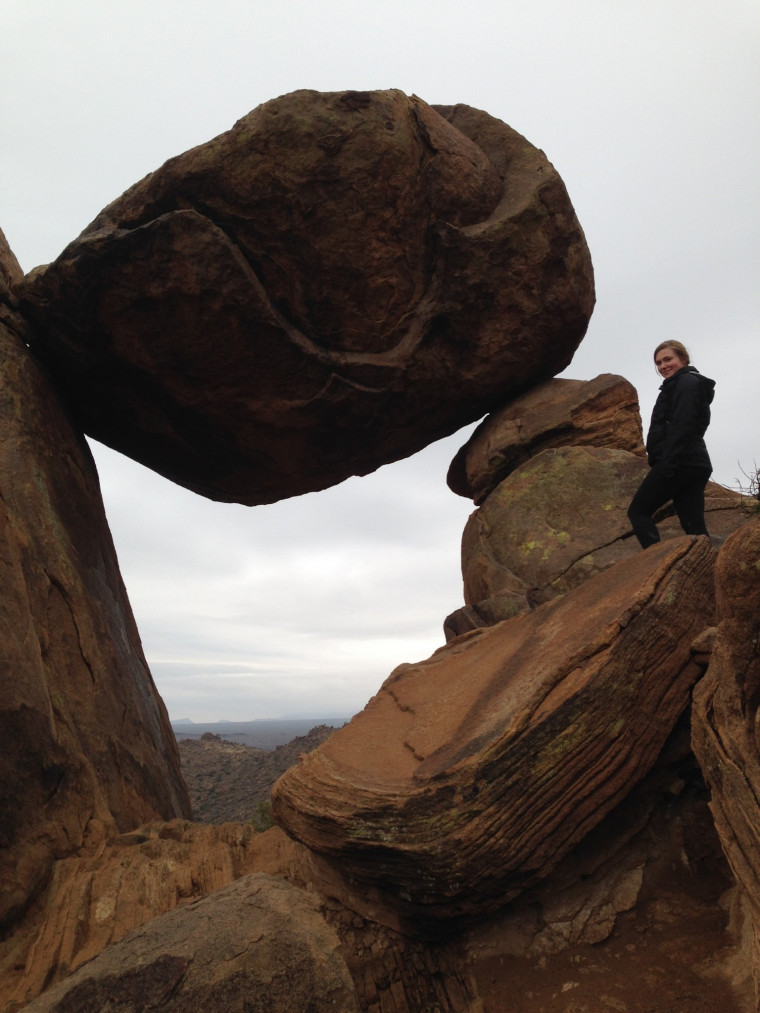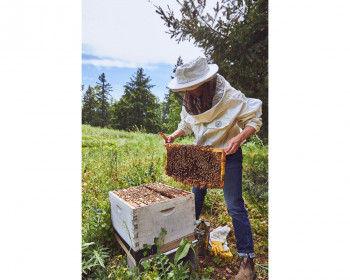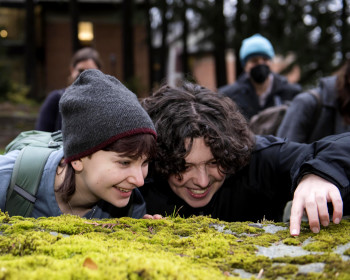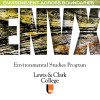ENVS Blog: Remaining Cautiously Optimistic
Open gallery

Michaela Koke (’16)
Like most students in the spring of their final year of college, I had to start thinking about my next steps – what would I do after graduating with my ENVS degree? How would I continue to work on the issues that were important to me? As I’ve learned from experience and through my studies, there are a wide range of opportunities for ENVS majors, which made it much easier to start my search because I cast such a wide net. I eventually found a paid internship with the Merck Family Fund in Boston, a family foundation that gives grants to environmental nonprofit organizations.
My internship with the Merck Family Fund is much like other internships in which I make charts, organize, take call notes, and do other administrative tasks. I also help plan and facilitate meetings with the Board of Trustees due to the small size of the foundation. Most importantly, though, I learn. I have learned how the grant giving process works, how foundations are run, and why we approve the grant applications we do. With environmental work, the nonprofit sector makes up a significant portion of the jobs available both nationally and globally. This internship is teaching me about one side of this sector, providing me with a valuable perspective that I could take to the grant-receiving side of nonprofit work.
The most valuable thing I’ve learned at my internship is about all of the work that is being done in the nonprofit sector. The Merck Family Fund funds five program areas relating to energy efficiency, carbon pricing, conserving land, paper production, and urban farming & youth leadership. These program areas are very specific and selective and we still fund around 85 grantees a year. Through my job, I get a lot of exposure to both the organizations we turn away and the ones we fund and all of the work that these organizations are doing. It has taught me that no matter the problem, how global or how local in scale, and no matter how much press the problem is getting, someone is working on it. The ENVS major does a great job of spelling out the complexities of these environmental and social problems we face today. However, it is difficult to teach the ways these problems are being solved and worked on because of the equally great complexity of solutions. The most valuable lesson I’ve learned from this internship is no matter what issue you want to work on, you are not alone. There are people and organizations who have started the work, it just takes a matter of finding them.
One year out of college, I’m realizing more and more how much learning I still have to do. But I’m not worried. My internship is only a year, however, I believe I could find another job relatively easily if I had decided to postpone grad school for a couple more years. (Next year, I will be getting my masters degree in environmental law and policy from Vermont Law School.) There’s a demand for people in our field, no matter how much our field is called into question at the moment – there’s a demand for problem solvers and people with a variety of skills (like GIS and website experience), for people who can approach issues with a critical eye and understand that just because something feels like a rope, that doesn’t mean it isn’t also an elephant. Going forward, our grantees at the Merck Family Fund have expressed concerns about the new administration but they are also hopeful that much of their work is part of a larger effort that is too big to stop. And if they can be cautiously optimistic, then so can I.
More Environmental Studies Stories
Environmental Studies is located in room 343A of John R. Howard Hall on the Undergraduate Campus.
MSC: 62
email envs@lclark.edu
voice 503-768-7790
fax 503-768-7620
Symposium Advisor Jessica Kleiss
Environmental Studies
Lewis & Clark
615 S. Palatine Hill Road MSC 62
Portland OR 97219


